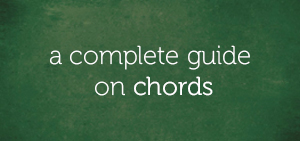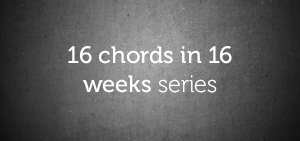Ok, so you’re experienced. Maybe you’re an expert sight reader or you’ve been playing by ear for several years.
One thing is for certain…
You’re reading this page so you definitely want to learn more or get to an even higher level in your playing!
There are a couple of things (out of many) that separate one musician from another.
One of them is the ability to improvise.
Being able to play on the spot is extremely important. This is everything from picking out chords to a song you just heard less than 2 minutes ago — all the way to being able to solo effortlessly over a few chord changes!
Let’s start with picking out a song.
Being able to learn a song a few minutes after you hear it comes with experience.
What it all amounts to, really, is something called “patterns.”
 That’s all songs are — patterns. And the good news is that the number of common patterns are finite. Yes, they can be arranged differently and some may sound trickier than others when placed differently (or unusually), but at the end of the day, once you’ve mastered the common ones, then there will be very little songs you won’t be able to pick out in minutes.
That’s all songs are — patterns. And the good news is that the number of common patterns are finite. Yes, they can be arranged differently and some may sound trickier than others when placed differently (or unusually), but at the end of the day, once you’ve mastered the common ones, then there will be very little songs you won’t be able to pick out in minutes.
The hard part is key mastery. Yes, it’s easy to play like a pro in ONE key but you’re not ultra-advanced until you can do ALL THE SAME STUFF IN ALL 12 KEYS. If you can’t, then there’s lots of work still left to do.
The number “12” is the key to your success. Once you master a new chord progression (pattern), immediately learn it in all 12 keys because your ability to immediately improvise or pick out a song in minutes is directly dependent upon your knowledge of that pattern AND the key that it’s being played in. You can know the pattern like the back of your hand but if you haven’t rehearsed it in the key it’s being played in, you’ll slow yourself down and it will take much longer to learn that song than usual. Worse, if you’re in a live performance or put “on the spot,” you may ruin your reputation by not being able to follow along.
On the other hand, if you know a key really well but haven’t mastered all the popular patterns out there, you’re still stick. Focusing on learning new songs in different genres will help you to master a plethora of patterns. Once you find it easy to play virtually every song that you hear, this may be a good indication that you’ve gotten a handle on the most common patterns.
This is a “guesstimation” but if the pareto principle holds true here, 20% of patterns are responsible for 80% of the songs you play and hear. From my own experiences, this seems about right.
As far as the “soloing” side of improvisation…
That amounts to a knowledge of scales, modes, and common melodies you can “play off.” Modes like Ionian, Dorian, Mixolydian, Locrian (and the others) should come to mind. Do a search for them in the upper right hand corner of this site and you should see some other posts on modes.
Not only modes and scales, but one must know where to place them (…what chords and progressions they flow smoothly over).
Lastly, “speed.”
I’ve seen musicians play chromatic scales (that is, one note after the other) and make them sound like brilliant solos just because they were played super fast and with precision. You can get away with a lot if you have speed. For example, you can arppegiate major seventh chords at a super fast rate up and down the piano and no one will know that you’re playing a basic chord broken up because it’s done so fast and precise. This happens a lot, in fact.
Hanon exercises are a great way to work on speed, dexterity, and independence. Trust me, it will be a while before you’re mastering all 60 Hanon exercises at an optimal speed so this, alone, should keep you occupied.
So be honest and rate yourself (1 out of 10):
____ Your ability to pick out patterns in songs within minutes.
____ Your ability to play the same in all 12 keys (no major variation between how you play a progression, lick, or solo in one key versus another).
____ Your ability to solo over any type of progression.
____ Your speed/precision level.
And of course, this isn’t a super comprehensive list but certainly factors that affect your playing.
Thanks for reading. See ya next time!







Comments on this entry are closed.